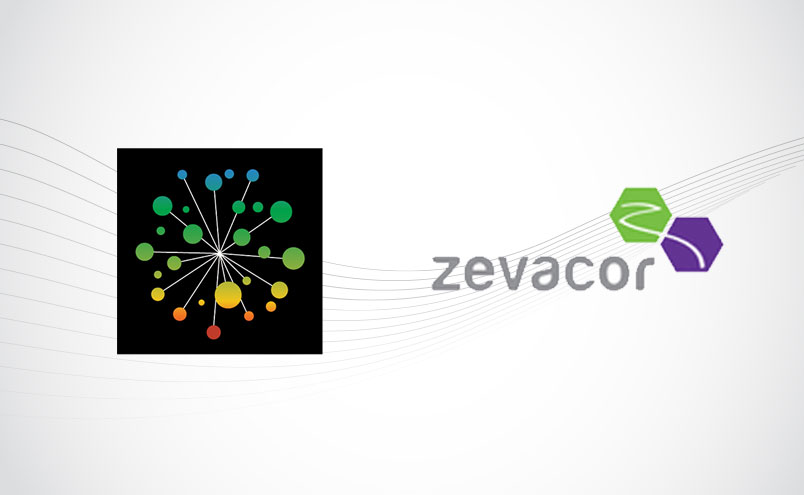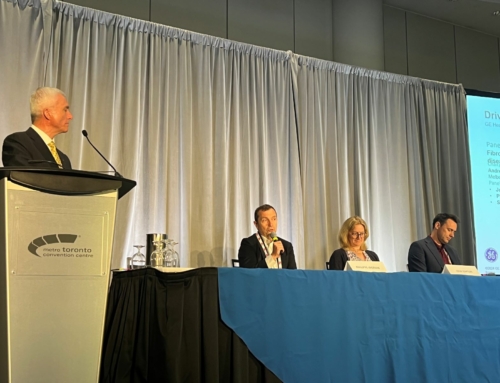September 27th 2017 Culver City, CA – Sofie Biosciences, Inc., the molecular imaging company specializing in novel tools for PET imaging and radiosynthesis of PET compounds, has today announced the completion of the acquisition of Zevacor Pharma to form “SOFIE”. The addition of Zevacor Pharma’s 16 radiopharmacies and Contract Manufacturing Organization will complement Sofie Biosciences’ imaging and radiochemistry product lines, bringing innovative technologies and theranostic production together under one company focused on the growth of molecular imaging and radioisotope-based therapeutics for clinical and preclinical use.
Zevacor Pharma, formerly known as IBA North America, annually serves over 425,000 patients and 700+ clinical practices. Patrick Phelps, President and CEO of SOFIE remarked: “As SOFIE, we’ll continue Zevacor Pharma’s commitment to customers, while making significant improvements to prepare us for growth as we help bring about the next generation of theranostics and tools to make and use them.”
A management team that includes Chief Revenue Officer Philipp Czernin, Chief Financial Officer Stan Berman, and Chief Technology Officer Melissa Moore will support Mr. Phelps. Philipp Czernin, heading business development for the combined company, commented: “We’re looking to invest and improve the capabilities of the 16 sites to scale production of FDG and new products like Neuraceq™ for positron emitting tomography (PET) imaging of patients being evaluated for Alzheimer’s disease (AD) and other causes of cognitive impairment, NETSPOT® for localization of somatostatin receptor positive neuroendocrine tumors (NETs) using PET, 11C-Choline PET scans in those patients with biochemical failure from prostate cancer and negative anatomical imaging to restage the patient, and NaF PET scans for detection and evaluation of bone metastases.” Melissa Moore, who will oversee operations for the commercial radiopharmacy and contract manufacturing organization, said: “With this acquisition, SOFIE will support the efforts of our academic and Pharma partners to help bring their novel diagnostics and therapeutics from early R&D through clinical trials and – hopefully – into routine clinical production. This is an amazing opportunity for us and our field.”
About SOFIE The early vision for molecular imaging was to revolutionize clinical diagnostics and therapeutics to better understand and treat the biology of disease. Today, SOFIE brings that vision to life by increasing the adoption and application diversity of theranostics by removing the cost and complexity traditionally associated with the technology. With a full line of imaging and radiochemistry systems and a premier radiopharmacy network and contract manufacturing organization to supply novel agents for diagnosis and therapy, SOFIE is dedicated to improving patient health.
For more information, please visit https://sofie.com or contact us at info@sofiebio.com.
About Neuraceq™ (florbetaben F18 injection) Indication Neuraceq™ is indicated for Positron Emission Tomography (PET) imaging of the brain to estimate beta-amyloid neuritic plaque density in adult patients with cognitive impairment who are being evaluated for Alzheimer’s disease (AD) and other causes of cognitive decline.
A negative Neuraceq™ scan indicates sparse to no amyloid neuritic plaques and is inconsistent with a neuropathological diagnosis of AD at the time of image acquisition; a negative scan result reduces the likelihood that a patient’s cognitive impairment is due to AD. A positive Neuraceq™ scan indicates moderate to frequent amyloid neuritic plaques; neuropathological examination has shown this amount of amyloid neuritic plaque is present in patients with AD, but may also be present in patients with other types of neurologic conditions as well as older people with normal cognition.
Neuraceq™ is an adjunct to other diagnostic evaluations.
Limitations of Use
- A positive Neuraceq™ scan does not establish the diagnosis of AD or any other cognitive disorder.
- Safety and effectiveness of Neuraceq™ have not been established for:
- Predicting development of dementia or other neurologic conditions;
- Monitoring responses to therapies.
Important Safety Information
Risk for Image Interpretation and Other Errors Neuraceq™ can be used to estimate the density of beta-amyloid neuritic plaque deposition in the brain. Neuraceq™ is an adjunct to other diagnostic evaluations. Neuraceq™ images should be interpreted independent of a patient’s clinical information. Physicians should receive training prior to interpretation of Neuraceq™ images. Following training, image-reading errors (especially false positive) may still occur. Additional interpretation errors may occur due to, but not limited to, motion artifacts or extensive brain atrophy.
Radiation Risk Administration of Neuraceq™, similar to other radiopharmaceuticals, contributes to a patient´s overall long-term cumulative radiation exposure. Long-term cumulative radiation exposure is associated with an increased risk of cancer. It is important to ensure safe handling to protect patients and health care workers from unintentional radiation exposure.
Most Common Adverse Reactions In clinical trials, the most frequently observed adverse drug reactions in 872 subjects with 1090 Neuraceq™ administrations were injection/application site erythema (1.7%), injection site irritation (1.1%), and injection site pain (3.4%).
About NETSPOT® (gallium Ga 68 dotatate) NETSPOT® is a radioactive diagnostic drug indicated for use with positron emission tomography (PET) for localization of somatostatin receptor positive neuroendocrine tumors (NETs) in adult and pediatric patients. There are no Contraindications for use. Warnings and Precautions include gallium Ga 68 dotatate contributing to a patient’s overall long-term cumulative radiation exposure. Long-term cumulative radiation exposure is associated with an increased risk of cancer. The safety of gallium Ga 68 dotatate was evaluated in three single center studies and in a survey of the scientific literature. No serious adverse reactions were identified. NETSPOT® has been designated as an orphan drug by the FDA and European Medicines Agency. For full prescribing information for NETSPOT® please refer to: http://go.usa.gov/cSywA.
About Sodium Fluoride F 18 Injection INDICATIONS AND USAGE Sodium Fluoride F 18 Injection is a radioactive diagnostic agent for positron emission tomography (PET) indicated for imaging of bone to define areas of altered osteoblastic activity.
IMPORTANT SAFETY INFORMATION
Allergic Reactions As with any injectable drug, allergic reactions and anaphylaxis may occur. Emergency resuscitation equipment and personnel should be immediately available.
Cancer Risk Sodium fluoride F 18 injection may increase the risk of cancer. Use the smallest dose necessary for imaging and ensure safe handling to protect the patient and health care worker.
Adverse Reactions No adverse reactions have been reported for Sodium Fluoride F 18 based on a review of the published literature, publicly available reference sources, and adverse drug reaction reporting systems.
About C11-Choline C11-Choline is a radioactive diagnostic agent for positron emission tomography (PET) imaging of patients with suspected prostate cancer recurrence and non-informative bone scintigraphy, computerized tomography (CT) or magnetic resonance imaging (MRI). In these patients, C11-Choline PET imaging may help identify potential sites of prostate cancer recurrence for subsequent histologic confirmation. Suspected prostate recurrence is based upon elevated blood prostate specific antigen (PSA) levels following initial therapy. In clinical studies, images were produced with PET/CT co-registration. Limitation of Use: C11-Choline PET imaging is not a replacement for histologic verification of recurrent prostate cancer.






